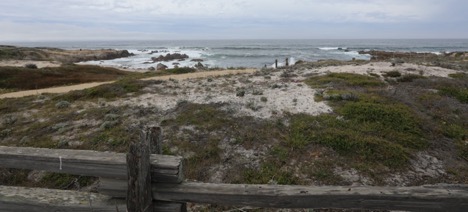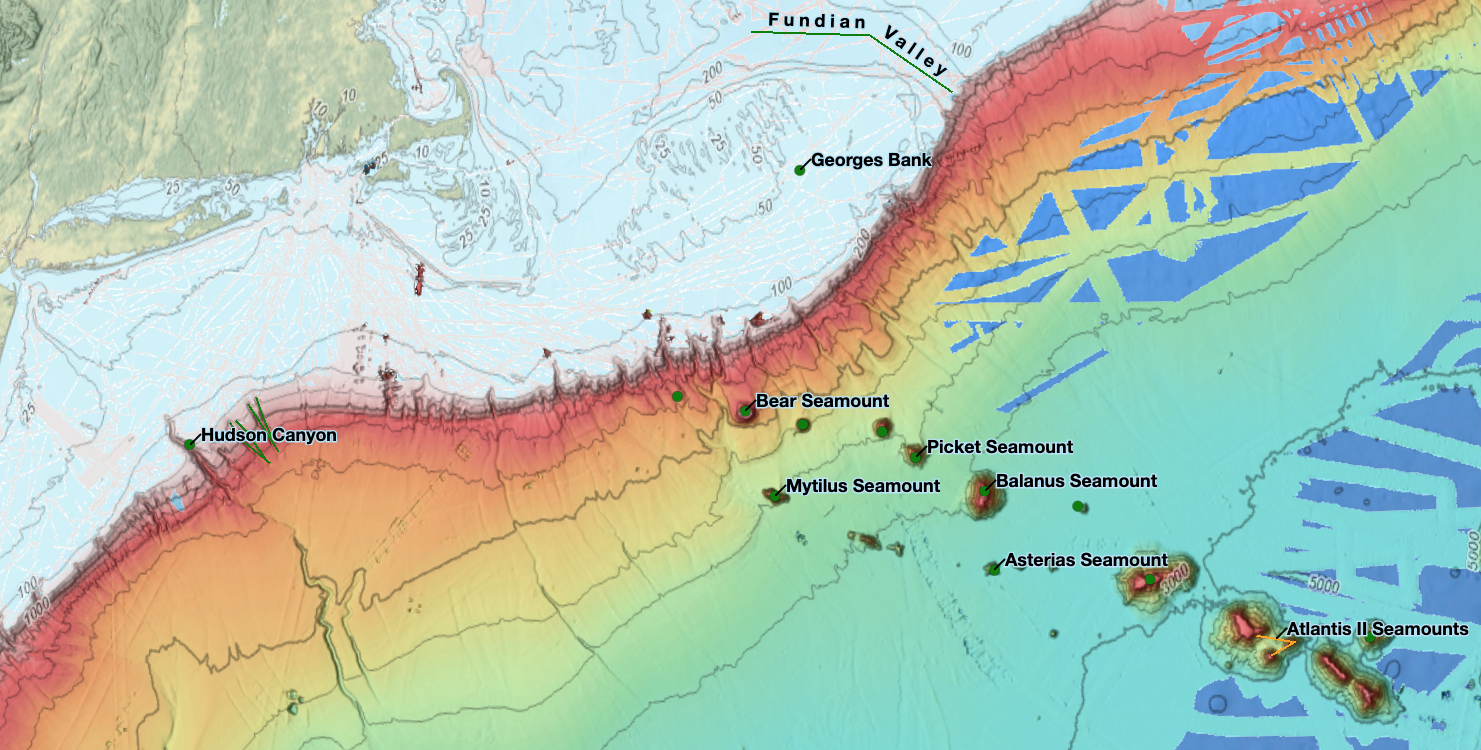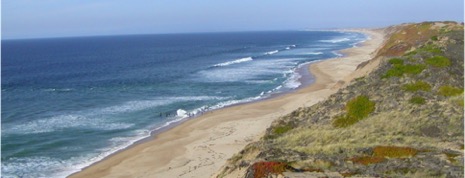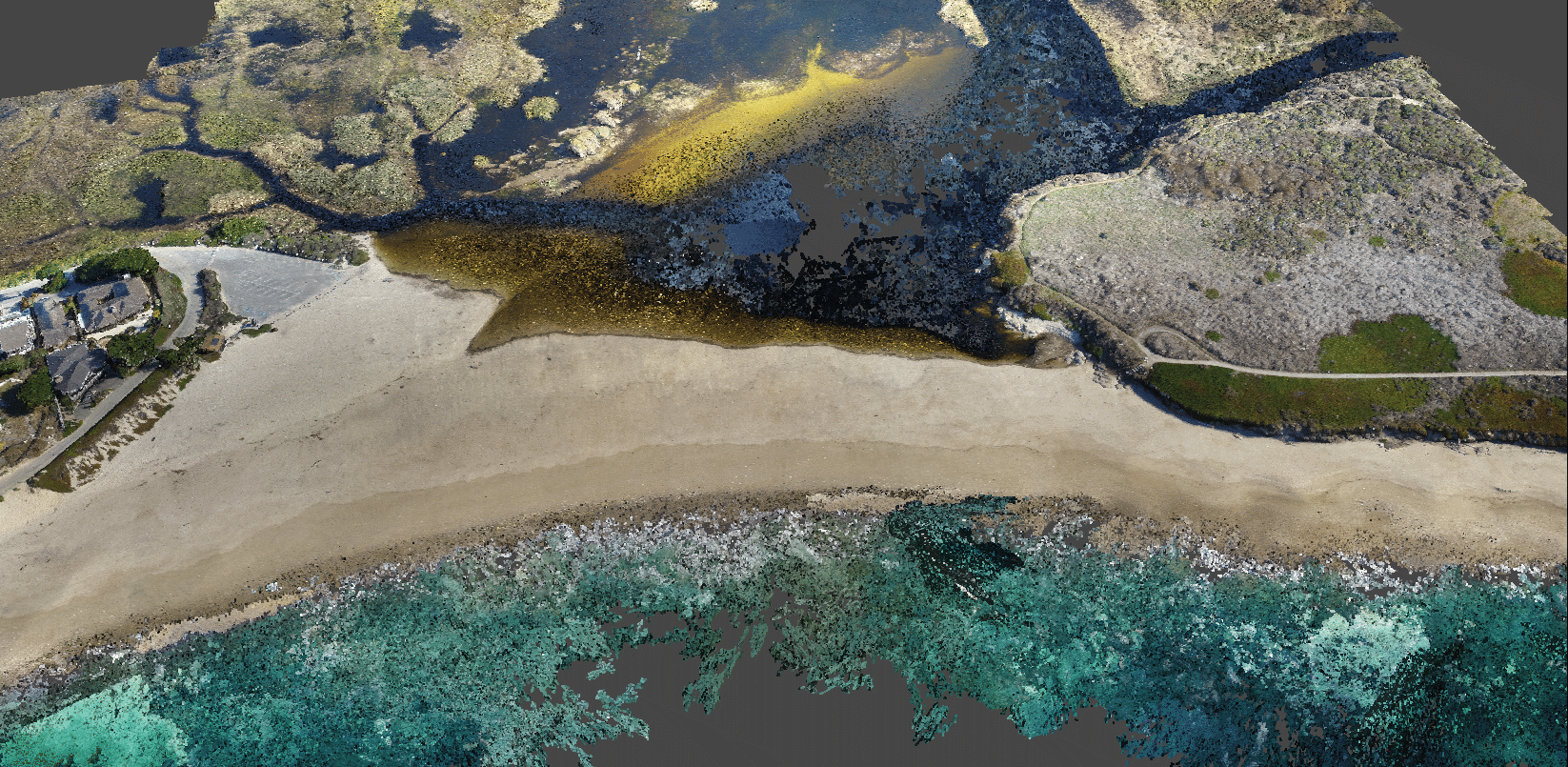OC Research - Oceanography
Research Thrusts
-
Coastal Ocean Monitoring using Autonomous and Remote Sensing Instruments
-
Ocean Acoustics
- Coordinated Arctic Acoustic Thermometry Experiment (CAATEx)
- New England Seamounts Coherent Acoustics Fluctuation Experiment (NESCAFE, FY22-24)
- Hi-lattitude Arctic Acoustic Thermometry Experiment (HiAATs)
-
Expeditionary and Mine Warfare Applications in the Littoral Zone
- Nearshore Processes Laboratory
-
CLASI: Coastal Land-Air-Sea Interaction Experiment
- ROXSI: ROcky shores eXperiments and Simulations (FY22-24)
- Beach breaching and estuary hydrodynamics
-
Observations and Predictions of Arctic Change
-
Numerical Modeling
Rocky Shores Experiments and Simulations (ROXSI)

The ROXSI is a multi-university research initiative focused on the littoral ocean dynamics along rocky shores, from the coastline out to ~1km offshore. Limited measurements of the wave transformation and resulting wave-driven circulation patterns that occur along the extreme rough bottom and shorelines, and these experiments will provide new observations to modify oceanographic models for rocky coasts. Local field experiments were conducted in 2022 and 2023 in several environments around the Monterey Bay, and continues in 2024 in the U.S. Virgin Islands.
ROXSI is a joint experiment with investigators from the Naval Postgraduate School, Scripps Institution of Oceanography (UCSD), Oregon State University, University of Delaware, University of North Carolina Chapel Hill, University of North Carolina Wilmington, and Stanford University / Hopkins Marine Station. ROXSI is funded by the Office of Naval Research.
Contact: Prof. Jamie MacMahan for potential thesis opportunities.
Task Force Ocean: New England Seamounts Calibrated Acoustic Fluctuations Experiment (NESCAFE)

Located in the dynamic currents of the Gulf Stream, Southeast of Georges Bank, the New England Seamounts provide a challenging environment for studying acoustic variability, signal detection, localization and tracking in a high turbidity region with complex topography.
Beginning 2022, environmental mooring were deployed at the Atlantis II seamounts to begin characterizing the ocean environmental conditions (temperature, salinity, currents vs. depth & time), with Spring 2023 pilot experiment.
The year-long primary experiment will begin deployments May-July 2024, with cooperative mooring deployments from 4 research vessels, and many university participants for the year-long data effort.
Funded by the Office of Naval Research, part of the Task Force Ocean, Department Research Initiative. Contact: Prof. John Colosi for potential thesis opportunities.
Coastal Morphodynamics
Connections between land and the coastal ocean are complicated by changes in morphology near river mouths. These systems pose challenges to characterizing the coastal ocean environment (sediment concentrations, salinity, temperature, etc) as well as characterizing the coastal morphological response (coastal flooding, beach hazards, beach breaching, etc.). We monitor intermittently breaching systems using remote sensing and in-situ methods including structure-from-motion (SfM), multispectral aerial imagery, circulation (water level and velocity), and water quality (temperature, salinity, dissolved oxygen). Waves and river discharge play a critical role in modulating outputs from these systems.
Thesis opportunities in this lab include UAS (drone) imagery and LIDAR analysis, machine learning with multispectral images, lab experiments on submerged granular flow, mapping of plume/surfzone dynamics, to name a few. Other opportunities include morphodynamic modeling of these systems.
Contact: Mara Orescanin for thesis opportunities.
Coastal Land-Air-Sea Interaction Experiment (CLASI)

The CLASI Defense Research Initiative primary objective is to improve the modeling of evaporation ducts through extensive measurements of wind, momentum and heat flux variability as it cross the shoreline. This will allow for "coast aware" improvements to numerical weather prediction models. Field experiments in FY21-22 throughout the Monterey Bay region, FY23 in Florida Gulf Coast, and additional experimentation if FY24 currently being planned..
CLASI is a joint experiment with investigators from the Naval Postgraduate School, University of Miami, Ohio State University, University of Minnesota, and the Naval Research Laboratory, and funded by the Office of Naval Research.
Contact: Jamie MacMahan


